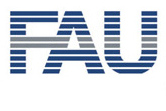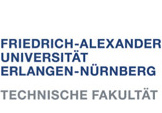

Conrad
23rd of March 2019: We finally released ![]() CONRAD 1.1.0. Standalone version mow supports all filters without unpacking directly. Also, we included am accelerated physical Monte Carlo CPU Simulation. In the next few days this release version will also be included into the new version of PyCONRAD.
CONRAD 1.1.0. Standalone version mow supports all filters without unpacking directly. Also, we included am accelerated physical Monte Carlo CPU Simulation. In the next few days this release version will also be included into the new version of PyCONRAD.
16th of March 2019: We finally released a ![]() new version of CONRAD after almost one year. All modifications and bugfixes of last year are included and now also available in the standalone version. In the next few days this release version will also be included into the new version of PyCONRAD.
new version of CONRAD after almost one year. All modifications and bugfixes of last year are included and now also available in the standalone version. In the next few days this release version will also be included into the new version of PyCONRAD.
6th of January 2018: Happy new year 2018! We celebrate the new year with a new CONRAD release including manifold learning and an update on the heart model. Furthermore, we fixed the bug that caused the software to crash occasionally on loading. Another new feature is the introduction of tomosynthesis trajectories with out-of-plane-rotation of the detector.
You can get the new version from GitHub or as binary ![]() here.
here.
17th of August 2017: CONRAD 1.0.7 now comes with full Python integration and will soon be also available als pip package for python 3. Simply install with:
pip install git+https://git5.cs.fau.de/PyConrad/pyconrad_java.git
pip install PyCONRAD
Notes on the Usage are found ![]() here.
here.
We just released CONRAD 1.0.6 which comes with several major changes including the new active shape heart model. Furthermore, the code is now hosted on GitHub at https://github.com/akmaier/CONRAD.git which allows direct access to the sources and updates. Another new thing is that we now also have a standalone version that can be run without eclipse.
CONRAD 1.0.5 Released
August, 4th, 2014: We just released a new version of CONRAD. Version 1.0.5 contains several bugfixes, a new trajectory viewer, and Marcel Pohlmann's wedge filter implementation presented at the ![]() CT Meeting this year.
CT Meeting this year.
Current CONRAD Version 1.04
The newest version of CONRAD integrates ImageJ's Trainable Segmentation and many more features that can be discovered on our ![]() tutorial pages.
tutorial pages.
Towards joint Development of Reconstruction Software
In the community of x-ray imaging, there is a multitude of tools and applications that are used in scientific practice. Many of these tools are proprietary and can only be used within a certain lab. Often the same algorithm is implemented multiple times by different groups in order to enable comparison. In an effort to tackle this problem, we created CONRAD as a software framework that delivers many of the tools that are required to simulate basic processes in x-ray imaging and perform image reconstruction.
CONRAD is a state-of-the-art software platform with extensive documentation. It is based on platform-independent technologies. Special libraries offer access to hardware acceleration such as CUDA and OpenCL. There is an easy interface for parallel processing. The software package includes different simulation tools that are able to generate 4-D projection and volume data and respective vector motion fields. Well known reconstruction algorithms such as FBP, DBP, and ART are included. All algorithms in the package are referenced to a scientific source. CONRAD offers a flexible license model with free or minimal-fee licenses for collaborative scientific users.
A total of 13 different phantoms and 30 processing steps have already been integrated into the platform until now. The platform comprises 74.000 lines of non-blank code of which 19% are used for documentation. The algorithms and phantoms are available to the scientific community with the release of this article.
CONRAD offers new opportunities for scientific collaboration and comparison that will enable the whole medical physics community to share algorithms and develop new ideas.


